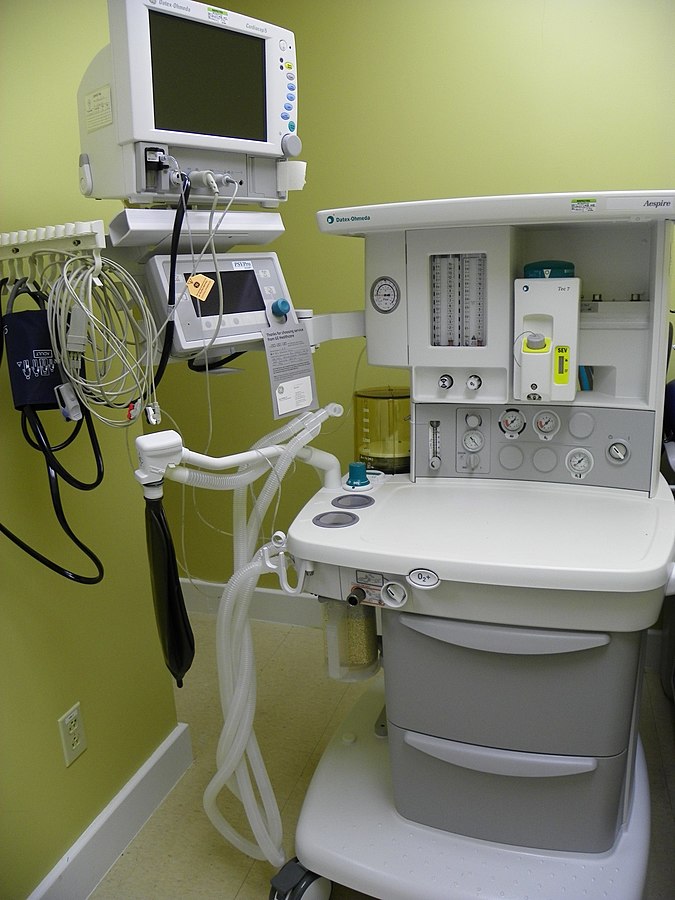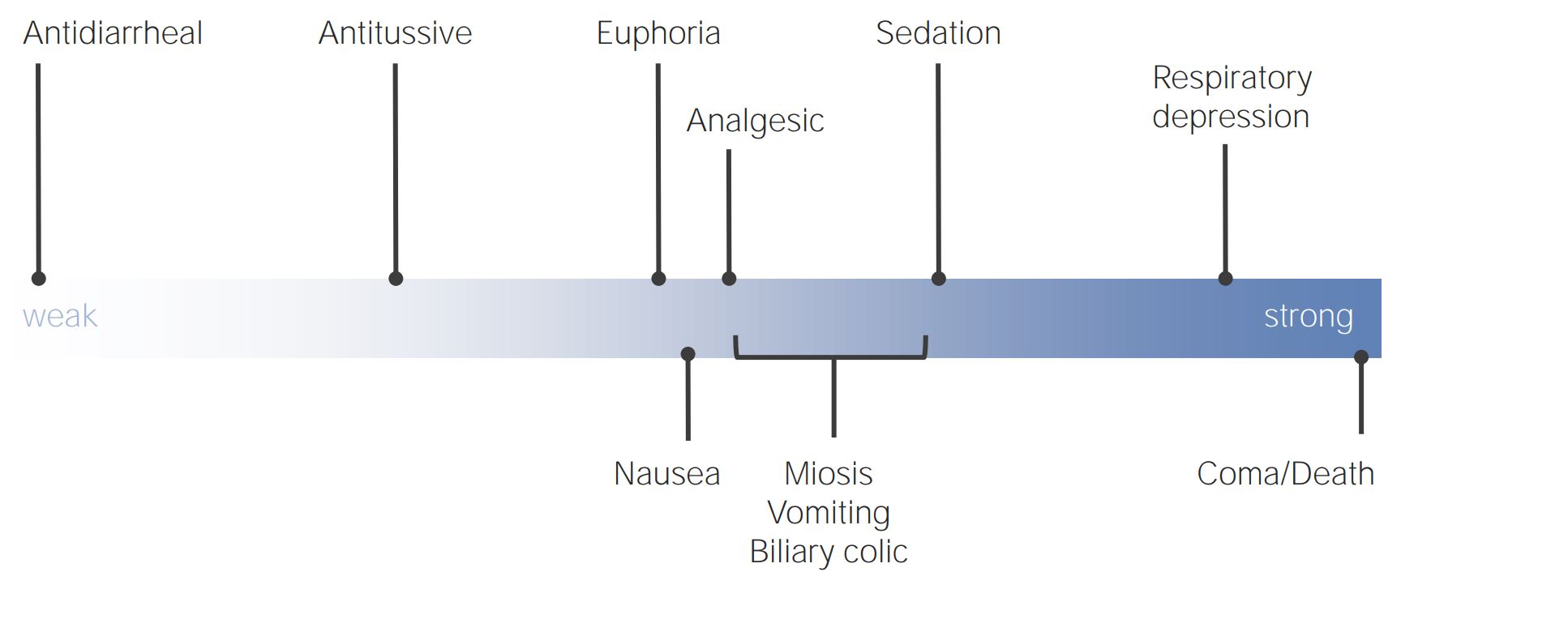Playlist
Show Playlist
Hide Playlist
Cardiac Function and Anesthesia – Respiration and Cardiovascular System
-
02 - Respiration and Cardiovascular System.pdf
-
Download Lecture Overview
00:00 So how about the cardiovascular system? Does general anesthesia have an impact upon cardiac function? How about the anesthetic vapours? Some anesthetic vapours can reduce the contractility of the heart and reduce cardiac output. These tended to be the older vapours such as Halothane, but modern vapours such as Isoflurane, Desflurane, and Sevoflurane have little or no effect upon cardiac contractility. 00:25 They do unfortunately, or fortunately depending on the situation, have an impact upon peripheral resistance, which is the resistance against which the heart has to work when it contracts. And low peripheral resistance may result in low blood pressure, but it may also allow the heart to contract more fully. So there's a balance all the time, trying to maintain it just right. If you reduce blood flow too much, you can reduce it to the brain, the kidney, and the heart itself. Obviously, not a good thing. Opiates and opioids have little of direct effect upon the heart, other than they slow heart rate, which in most cases is a very positive situation. They also have a moderate effect on lowering blood pressure. The changes are moderate, and they have very few side effects. 01:19 Induction drugs, unfortunately, are much more problematic. The most popular induction drugs are Thiopentone and Propofol. Both of these have profound effects on reducing cardiac contractility. In addition, Propofol causes marked reduction in peripheral resistance, thus potentiating hypotension, and sometimes leading to reduced blood flow to vital organs, including the heart. 01:49 So how about the induction drugs? We already mentioned Propofol and Pentothal. 01:53 We're now going to talk about Ketamine and how it affects cardiac function. 01:59 Ketamine is often used in patients who appear to be volume depleted at the time of surgery or have had trauma, because it increases heart rate and increases blood pressure moderately. 02:11 The problem is that it can lead to increases in blood pressure that are unacceptable, and it can lead to tachycardia or increased heart rate that's unacceptable. On the good side, it acts as a pain killer. So less opioids needs to be used. You can give Ketamine without a whole lot of extra narcotic on board. The problem with Ketamine, and one of the reasons why it isn't as widely used as it might otherwise be, is that people have what are called Emergence Phenomena when they start to wake up from Ketamine, which can include hallucinations and quite strange behaviour. Patients will wake up and be picking at things in the air, they'll think they see bugs. 02:53 They'll be very concerned about noises in the room. So, at the time Ketamine was used fairly regularly in the early 80's, the recovery rooms were often kept dark and very, very quiet. Which meant you really couldn't see your patient and monitor them adequately. So that was totally unacceptable and we no longer accept that as a property within our recovery rooms. Etomidate, which is a drug that has been available in the United States for many years, but in many other countries hasn't been available, because it wasn't marketed due to cost constraints, is a very good drug to use in patients who have had brain trauma. Because it has very little effect on intracerebral blood pressure, has very little effect upon the cardiovascular system, and oxygen, cerebral oxygen delivery tends to remain stable. But it's not a perfect drug. It suppresses the release of cortisol from the adrenal cortex. And this may interfere with the body's ability to handle the stress of trauma, surgery, or anesthesia. And there are some reports that suggest, that unexpected death following surgery. Not at the time of surgery, but in the weeks to maybe a month following surgery, that unexpected death is higher in patients who have had Etomidate. So, what does the anesthesiologist do about these changes? Low blood pressure can reduce blood flow, thus oxygen supply to vital organs. 04:23 Rapid heart rates can increase the work of the heart and increase the need for myocardial oxygen, which is difficult to supply in the presence of low blood pressure. 04:35 A blood pressure that is too high is also unacceptable, as it can lead to strokes, an increased cardiac work, which may cause cardiac ischemia or heart attacks. 04:47 So the anesthesiologist can modify these variables by careful administration of either stimulating drugs, such as Ephedrine or Phenylephrine, Epinephrine or Norepinephrine, which increase blood pressure and heart rate. Of course, all of these drugs have their pros and cons. 05:05 So careful understanding of each is necessary before one uses them. For instance, Phenylephrine will increase blood pressure quite nicely, but only for a very short period of time and often causes quite a profound drop in heart rate, whereas the others all increase heart rate and tend to increase blood pressure. Constant monitoring of the patient's condition, during and after anesthesia, has shown to be the most important aspect of anesthesiology.
About the Lecture
The lecture Cardiac Function and Anesthesia – Respiration and Cardiovascular System by Brian Warriner, MD, FRCPC is from the course Anesthesiology: Introduction.
Included Quiz Questions
Which of the following statements regarding anesthesia is FALSE?
- Modern anesthetic vapors will reduce the contractility of the heart, reducing cardiac output.
- Modern anesthetic vapors frequently reduce peripheral resistance, which can cause a drop in blood pressure.
- The decrease in peripheral resistance caused by modern anesthetic vapors may allow the heart to contract more fully.
- Use of opioids will lead to a slowing of the heart rate but have little effect on contractility.
- Induction drugs, such as thiopentone and propofol, have profound effects in reducing cardiac contractility.
Ketamine is used occasionally as an induction anesthetic. Which of the following statements about ketamine is FALSE?
- Ketamine decreases blood pressure.
- Upon waking after receiving ketamine, patients may experience emergence phenomena.
- Ketamine increases the heart rate.
- In addition to its induction effects, ketamine acts as a painkiller, so fewer opioids have to be used to prevent excessive sedation.
- Ketamine increases blood pressure.
Which of the following statements regarding general anesthesia is FALSE?
- Ephedrine, phenylephrine, epinephrine, and norepinephrine are all used to increase blood pressure and decrease heart rate.
- Low blood pressure can reduce blood flow and thus, oxygen supply to vital organs.
- Rapid heart rates can increase the work of the heart and increase its need for oxygen.
- A blood pressure that is too high can lead to strokes and increase cardiac function.
- Etomidate is occasionally used in patients with brain trauma because it has little effect on the cardiovascular system and maintains cerebral oxygen delivery.
Customer reviews
5,0 of 5 stars
| 5 Stars |
|
1 |
| 4 Stars |
|
0 |
| 3 Stars |
|
0 |
| 2 Stars |
|
0 |
| 1 Star |
|
0 |
This lecture was informative and engaging. The speaker did an excellent job of presenting the material in a clear and concise manner, making it easy to understand.





